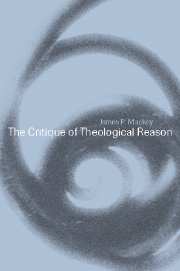Prologue
Published online by Cambridge University Press: 22 September 2009
Summary
The prologue to Part One ended with the prospect held out of wedding the best of what postmodernism has inherited and promoted to the best that current scientific questers after truth have found, so as to come to as clear a view as possible of the nature, function and truth value, in short, of the prospects of theology today; for that is the end goal of this essay.
Now, of course postmodernism inherited a great deal that is good. The product of an eventual coming together of the two main streams of modern philosophy, the phenomenological and the ‘Marxist’, it inherited the best features, as well as the worst, of its parents. And as for that which postmodernism itself then distinctively promotes, there is also in this respect much that is good, and some that is bad. Indubitably the best example of the worst that postmodernism has distinctively produced is found in that scene from Derrida in which writing (like knowledge, and language, its bearer) is stranded between a ‘disappeared’ subject and a ‘disappeared’ reality. This left language as a play of signifiers amongst themselves, with a simple mutual negating, or what Sartre called nihilating, dominating the relationships between these ever dominant signifiers. So that meaning was permanently deconstructed, and truth infinitely postponed.
- Type
- Chapter
- Information
- The Critique of Theological Reason , pp. 177 - 181Publisher: Cambridge University PressPrint publication year: 2000

